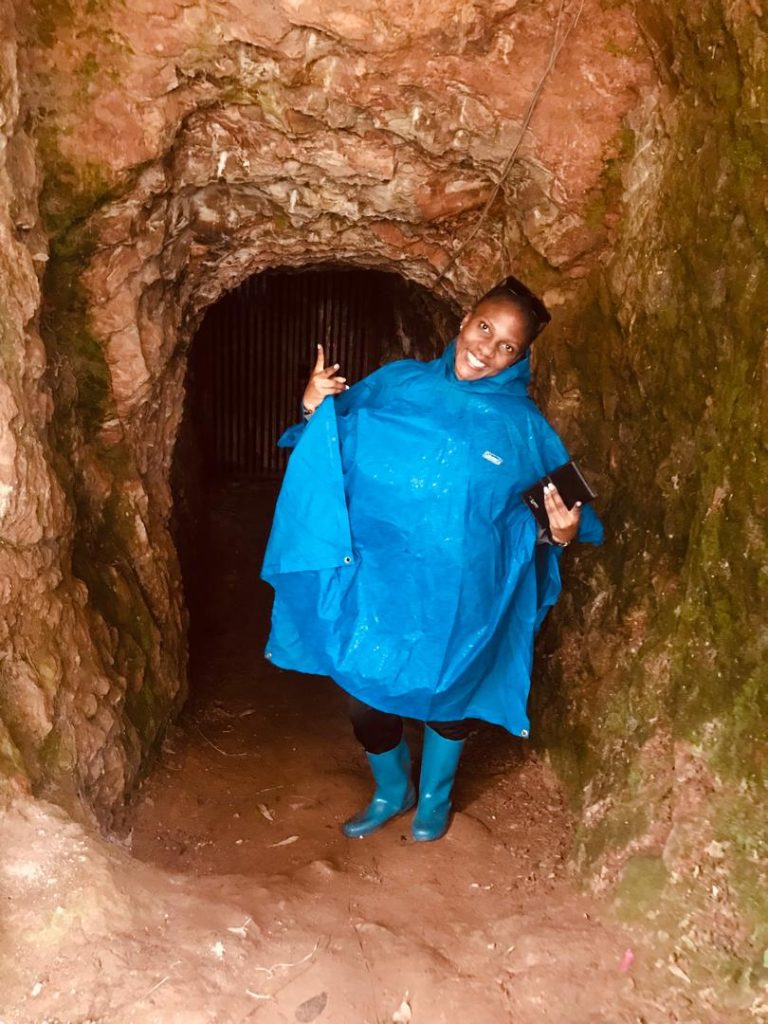In many traditional societies, women were largely confined to domestic roles, their potential in education and professional life stifled by deeply rooted gender norms.
But today, that narrative is changing. Women are not only pursuing higher education and professional careers, but they are also breaking barriers in fields long dominated by men.
One such area is mining, an industry historically viewed as the domain of rugged masculinity. Despite ongoing global efforts toward gender equality, industries like finance, technology, manufacturing, and mining still grapple with pay gaps, underrepresentation, and gender-based discrimination. Yet, the women who do step into these sectors are rewriting the rules, even as they face daunting challenges.
Take Ghislaine Murindabigwi, for example. She started her career as a junior geologist at the Interafrican Mining Corporation (I.M.C.) and now serves as a geologist at the Rwanda Mines, Petroleum and Gas Board (RMB). Her journey has not been without obstacles.
“Early on, people questioned whether women could handle the physical demands of mining,” Murindabigwi recalls. “But I’ve proven that we can, and I’ve worked to overcome those biases.”
Breaking into mining requires more than just technical expertise; it also demands resilience against societal expectations.
Many women miners find themselves judged by families and communities, their commitment to their careers sometimes mistaken for a neglect of traditional caregiving roles.
The perception that a woman working long hours in remote locations is somehow “unfeminine” or “selfish” persists, adding another layer of difficulty.
Promise Mahanga, also a geologist at RMB, has encountered these societal pressures firsthand. “Society often questions how we can leave our families for extended periods, sometimes months at a time, when our work demands it,” she explains. Nevertheless, Mahanga stresses the importance of having a plan and remaining determined, even when the job clashes with traditional expectations.

Promise Mahanga, a Geologist at Rwanda Mines, Petroleum and Gas Board.
While these challenges are real, progress is equally evident. The mining industry in Rwanda is gradually evolving. More women are earning the qualifications needed to excel, thanks in part to programs at institutions like the University of Rwanda, which provide training in geology, mineralogy, and gemology. Women now serve as geologists, gemologists, and engineers, gradually reshaping the workforce.

Promise Mahanga, at Gicumbi (Miyove) mine during gold exploration.
Regine Niyitegeka, a gemologist at RMB, has a clear vision for the future. “I hope to see more unity among women in mining,” she says. “It’s not just about geologists or gemologists, it’s about coming together to own mines and undertake major projects as a collective.”
Niyitegeka, like many of her colleagues, values the collaboration and support she receives from male coworkers. She also encourages young women considering a career in mining to be confident in their abilities and to push past societal expectations.
As the industry becomes increasingly automated, physical strength is no longer a critical barrier. Technological advances are creating new opportunities, making mining less about brute force and more about skills, innovation, and collaboration.

Promise Mahanga, on the right, was in the field at Muhanga doing stream sampling for lithium exploration. On the left, she was studying the drilling samples in a core yard (where they study and observe the samples obtained from drilling, whereas drilling is the process of penetrating through the ground and extracting rocks from various depths beneath the surface to confirm the geology beneath).
Alexandre Mukuralinda, a procurement specialist at RMB, emphasises this shift. “Mining is no longer just about manual labor. With modern technology, women have just as much of a place in this field as men.”

Alexandre Mukuralinda, a Procurement Specialist at Rwanda Mines, Petroleum and Gas Board.
With changing attitudes, growing educational opportunities, and an increasing number of role models paving the way, the future is brighter for women in mining. Their resilience, resourcefulness, and determination are proof that gender should never be a limitation in any field.
As barriers continue to fall, the industry can only benefit from the diversity and talent women bring to the table.
